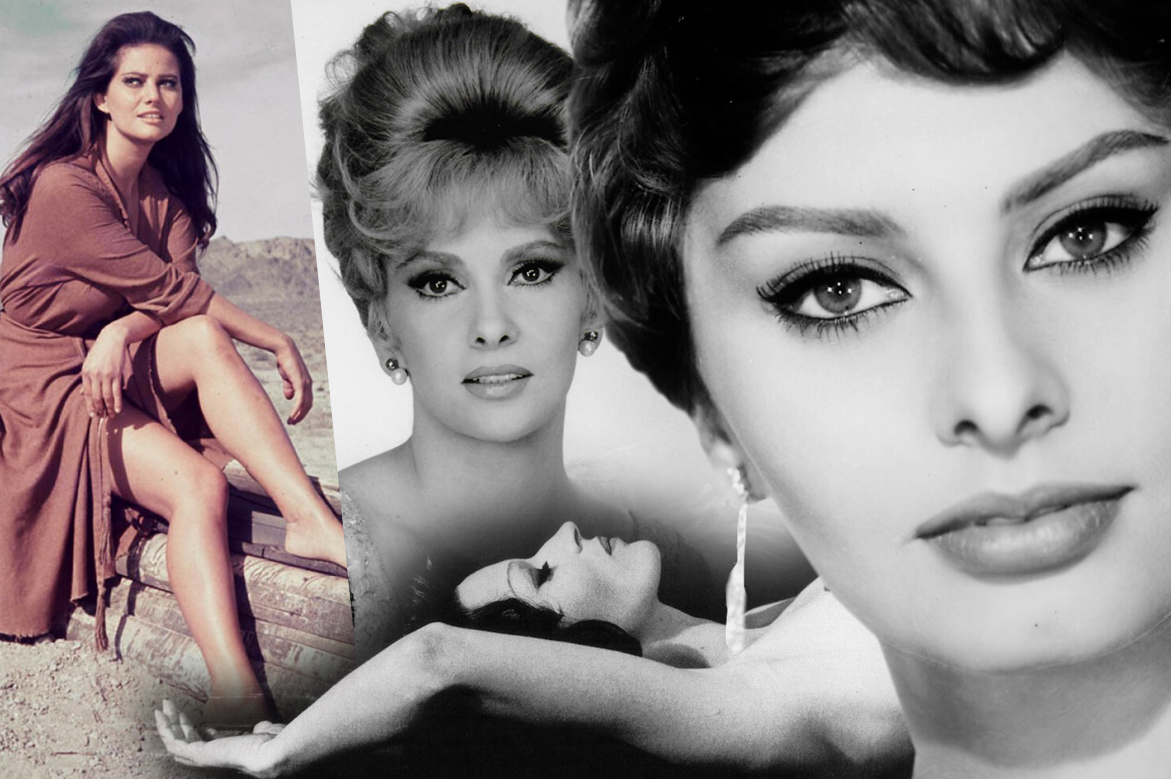EUROPEAN MASTER OF FINE ARTS IN CINEMATOGRAPHY & TELEVISION
Options:
Eabhes code
COURSE DESCRIPTION MASTER OF FINE ARTS CINEMA & TELEVISION International Program taught in English
Directing – Production – Cinematography – Editing – Screenwriting
FMCD-3
GMHF-1
FMCFW 1-3
FMDR-1
GMFL-1 §CURIOSITY AND THE MAGIC OF CINEMA
This course is dedicated to discussing and encouraging Curiosity and its necessary influence on the Whys of filmmaking. The quality and meaning of a film comes from What we have to say as well as How we say it. Film is influenced by art, music, politics and current events. This course will expose the students to the various facets of life in Paris available outside of the academic structure that will feed them and help them grow as artists.
§FILM HISTORY
This course will conduct an exploration of the essential elements of film through lecture, discussion, and viewing of a wide variety of films and film excerpts. Class discussions focus on analyzing the ways in which cinematography, “mise en scène”, editing, sound, and other aspects of film combine to make it a unique and meaningful form of art, entertainment, and instruction.
§ SCRIPTWRITING
The objective of this course is to provide student an introduction to the building blocks upon which all film and television writing are based: visualization, dialogue, scenes, sequences, and basic dramatic structure.
During the second year this course will offer both lecture and workshop. Although students will analyze a number of film script and film extracts, the emphasis will be on “learning by doing”. All elements of the screenplay craft will be analyzed and discussed, including but not limited to story, structure, characters, and dialogue and scene description. Particular attention will be given to the visual aspect of screenwriting.
§ DIRECTING
This course is designed as a dynamic and intensive cycle of exercises and project films designed to give students an insight into turning ideas into sophisticated images.
The focus of this term directorially is to cover concepts such as color scheme, location, props, casting, and coverage.
§FRENCH LANGUAGE
An introductory course in French grammar, vocabulary and pronunciation.
180302_PGM_MFA_EICAR
Page 1 of 6
FMCLGT 1-3
FMED-1-3
FMPR-1-3
FMTU-1-3 §CAMERA LIGHTING
This course aims to teach the fundamentals of framing and lighting. The students learn camera technology (DV, HDV, Film); the lighting and grip equipment. Camera position, movement, composition
After theoretical courses, students go in studio for a practical exercise and experimentation.
The emphasis of the second part of the course is on research and experi- mentation in lighting and framing. The aesthetics of picture composition and light are applied to practical exercises and to the students own personal film projects.
Students will study video and motion picture photography as means of aesthetic expression and communication.
The course includes lecture and practical application on camera operation, lenses, filters, film, videotape, exposure, composition, formats, location and studio techniques, and laboratory procedures.
§ EDITING
There will be two components to this class. The first component is devoted to mastering the software. The second component will cover editing theory. Students study the basic principles and aesthetics of editing film, video, and digital media, with practical experience through the completion of short editing assignments.
Students will know how to face the challenge of editing a film. They will have the keys to understand what film they are making and the use of the appropriate tools to make it existing. This course aims to teach the relationship between the technical and the creative aspects of editing in a story and character centred approach.
§ PRODUCTION
A “how-to-do” course where the students will learn the “abc’s” of organizing a film shoot. Special attention is given to the two key posts in organizing a film production, the 1st assistant director and production manager, and how to adapt their roles to low budget films in Paris. Students will work on several assignments such as preparing script breakdowns and basic scheduling.
During the second year, based on a real Film exercise, students will learn how to make a film from A to Z. The course will cover issues such as:
– How the Production Family works
– How to approach Production (production breakdown, costs, budget…) – How to assess a location (scouting)
– Production documents
– How to optimize the prep time
– How to deal with a catastrophe
§ TUTORING
Due to the complex nature of film, both a technical craft and an art, our programs provide the students with many individualized tutoring sessions. In these “one-on-one” programs, professors will closely supervise all the student’s projects including the pre-production, production, and post- production of the student’s third term film.
180302_PGM_MFA_EICAR
Page 2 of 6
FMPRD-1
FMSTPR 2-4
FMTFP-3 §PRODUCTION DESIGN
The aim of this course will be to introduce the role of the Production Designer in his partnership with the cinematographer and the director. The course explores the creative process of visually and physically developing an environment that becomes an essential part of the storytelling process. The first part of the course will include a thorough description of the job of Production Designer (and Art Director) with some history of how the term developed and how various countries have integrated it in their filmmaking process. The students will learn how a script is broken down for art department needs – how and why decisions about where to shoot are made, and how the work of the art department is scheduled.
§PRODUCTIONS / INTERNSHIP
From April to July, students will focus exclusively on the production of the short films projects, with extensive consultation from their head professor and relevant tutors. Students must work on at least four other project in the international department (as grips, sparks, camera assts, asst directors, producers…). This can be an MFA production or BFA production.
The productions should be shot in circumstances as close to the professional world as possible. In such circumstances, students will learn that the film business is tough, brutal and extremely competitive.
The amount and quality of their participation in other student productions is a big part of their grade. Students will be asked to pull together all the diverse skills they’ve learned in their various classes – directing, screenwriting, editing, production, production design, cinematography – to make a movie. If their projects are not up to par, they have to re-work them until they are.
The last step of the grading procedure will take place in October, when the jury will review the end-of-year productions. A jury made of Professors & Pedagogical staff will evaluate the student’s participation in Eicar film shoots and the end-of-year film he/she has possibly directed during the Academic year.
Students may do an internship if they want. The length and quality of the internship can help balance out their final grades.
§THIRD TERM PROJECT PREP
This course prepares students to confront the professional world of film- making and discover their way between the artistic and commercial. Approaches of production and find their own artistic identity.
To use and enhance the skills the students have acquired during their previous year. Using the 5 core disciplines – producing, editing, screenwriting, cinematography, directing as well as acting – students should achieve professional levels for their end-of-year film project.
The productions should be shot in circumstances as close to the professional world as possible. In such circumstances, students will learn that the film business is tough, brutal and extremely competitive. This course will help them to prepare for this second semester film.
180302_PGM_MFA_EICAR
Page 3 of 6
FMTH STPR4
FMWC-2-3 §THIRD TERM PROJECT / END-OF-YEAR FILM
Students who declare an emphasis in screenwriting, cinematography, editing,
or producing do not have to direct a film but must complete their minimal credit and degree requirements.
Minimum requirements for emphasis in:
1. Scriptwriting: Completed pitch, synopsis and treatment, and two key scenes
from two of the 3 acts.
2. Cinematography: 3 films as director of photography.
3. Editing: 3 films as editor.
4. Production: 3 films as producer. Organized Production binders
required.
5. Directing: Completion of rough cut of final film to department.
Additionally, students must work on at least one other project in the international department (as grips, sparks, camera assts, asst directors, producers…). This can be an MFA production or BFA production.
The last step of the grading procedure will take place in October, when the jury will review the end-of-year productions. A jury made of Professors & Pedagogical staff will evaluate the student’s participation in Eicar film shoots and the end-of-year film he/she has possibly directed during the Academic year.
§ WORKSHOPS
The Workshops serve as a professional bridge between the school and the film industry. Workshops are intense, concentrated modules ranging from one day to four weeks, covering a multitude of specialized subjects concerning the film industry including production, distribution, camera and lighting techniques, scriptwriting, color timing, 3D production, high end editing techniques, etc. The workshops are given by experienced and internationally renowned film professionals, all highly accomplished experts in their specific fields.
The Workshops proposed are linked to the 5 different options:
Directing, Cinematography, Scriptwriting, Production, Editing.
For instance:
-A Cinematography option student is given the priority to enrol a
HD workshop.
-An Editing option student is given the priority to enrol an Adobe
Premiere Pro workshop.
-A Production option student is given the priority to enrol a
Producing commercials workshop.
180302_PGM_MFA_EICAR
MFA Standard course schedule î Page 4 of 6
MFA STANDARD COURSE SCHEDULE
1st year ECTS credits
GMFL-1 French language 3 GMHF-1 Film history 2 FMCFW-1 Script-writing 3 FMCLGT-1 Camera lighting 4 FMDR-1 Directing 10 FMED-1 Editing 3 FMPR-1 Production 3 FMPRD-1 Production design 1 FMTU-1 Tutoring 1 FMSTPR-2 Productions / Internship 24 FMWC-2 Workshops 6
Total credits for the 1st year: 60
2nd year ECTS credits
FMCD-3 Curiosity 1 and the magic of cinema
FMCFW-3 Script-writing 4 FMCLGT-3 Camera lighting 4 FMED-3 Editing 3 FMPR-3 Production 3 FMTFP-1-3 Third term project prep 5 FMTU-3 Tutoring 1 FMWC-3 Workshops 9 FMTH Third term project
18 FMSTPR-4 Productions / Internship 12
Total credits for the 2nd year: 60
STPR-4 End-of-year film
Total credits for 2-year programme: 120 ECTS credits REMINDER: A minimum of 300 ECTS credits is required for the Master’s degree.
The European Master is validated once the candidate has accumulated all the fundamental credits of the chosen discipline.
Additional credits î
180302_PGM_MFA_EICAR
Page 5 of 6
ADDITIONAL CREDITS
1. Compulsory:
T.O.E.I.C.: 12 ECTS credits (score of 600)
+ 1.5 ECTS credit for every 100 points scored
Or
For English mother tongue students or overseas students who never studied English as a foreign language before:
T.E.F. or T.C.F., minimum level required, B2 of the European Common Language Framework.: 12 ECTS credits
2. Electives:
Master Class Lecture Series: 6 ECTS credits
Internationally renowned members of the film industry and top professionals come as regular guests lecturers to our school for a seminar or Master Class lecture.
Students will be given additional credit only if they are present at ALL the lectures or seminars.
Company internship extending beyond the duration requested by the program:
1 ECTS credit per additional week in the country of studies
2 ECTS credits per additional week abroad
Participation in an external contest: 2 ECTS credits
Participation in an exhibition: 2 ECTS credits
Prize obtained in an external contest
(with a specia









